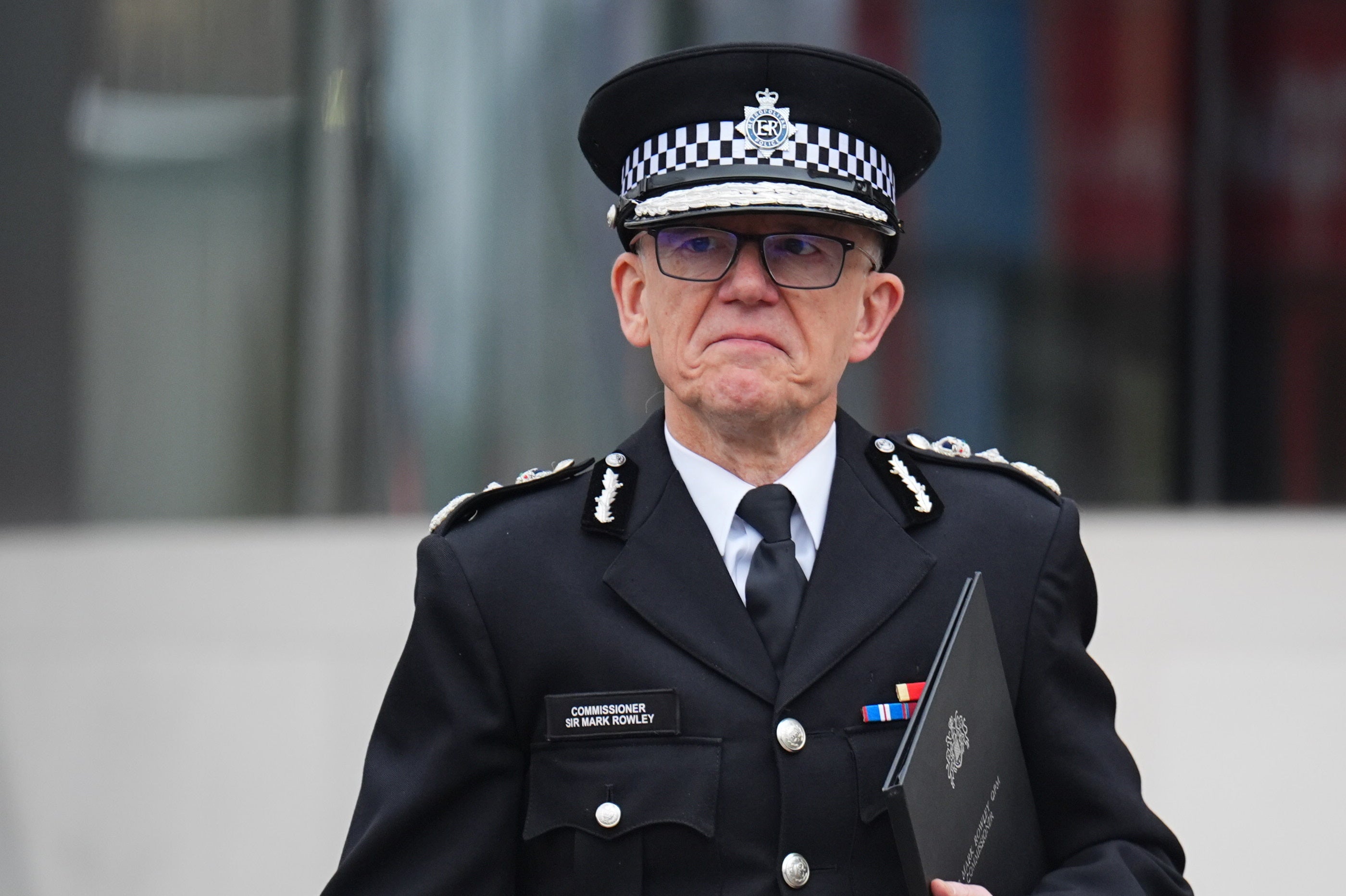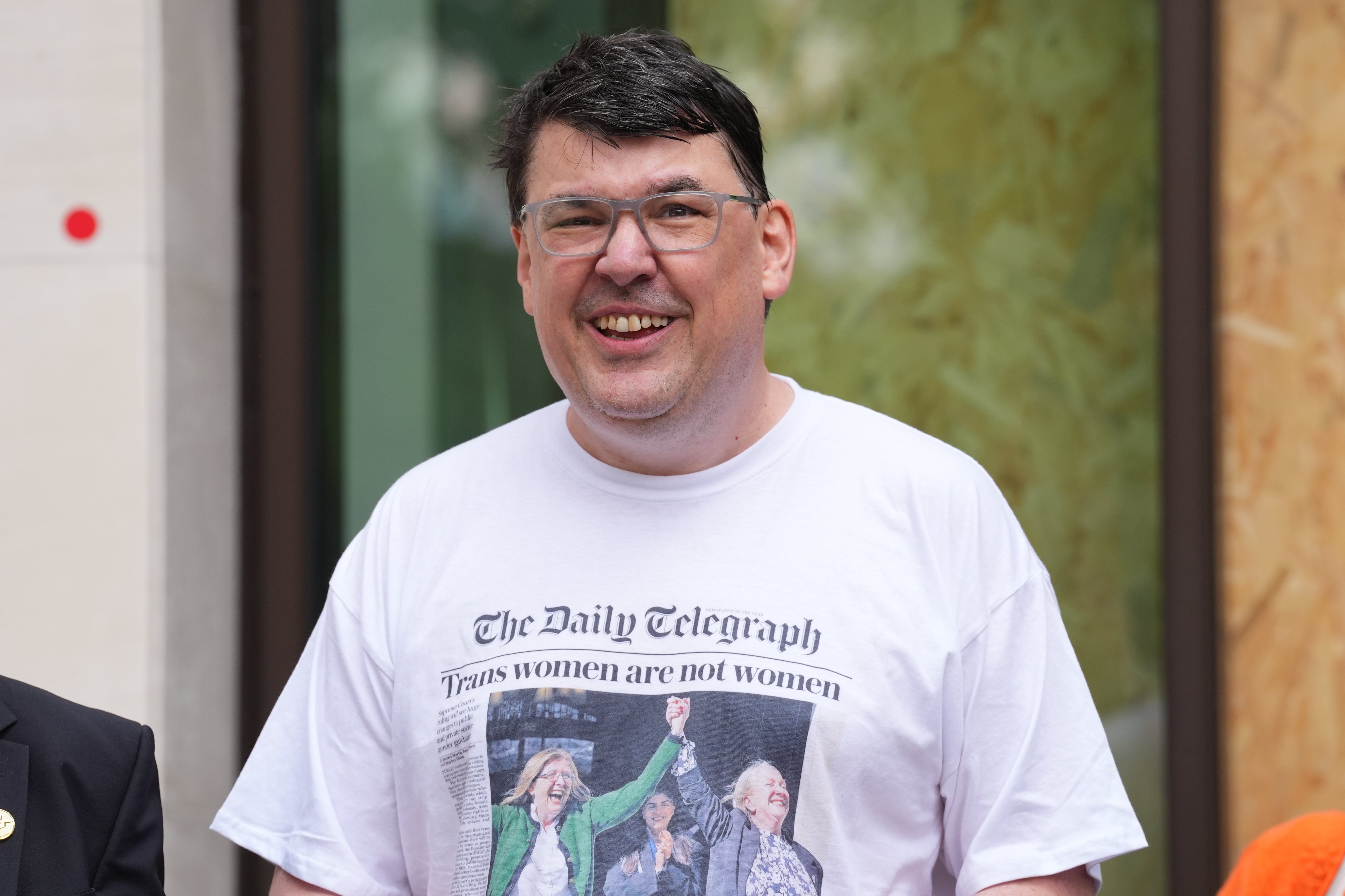Metropolitan Police commissioner Sir Mark Rowley has backed officers as the force faces criticism over the arrest of comedy writer Graham Linehan, but has said the force should not be responsible for “policing toxic culture wars debates”.
Sir Mark said his officers are in an “impossible position” as he called for the law to be changed, and said the force will now only take action on social media abuse “where there is a clear risk of harm or disorder” as he broke his silence over the arrest of the Father Ted writer over anti-trans posts on social media.
Linehan claimed on his blog that he was arrested by five armed police officers when he arrived at Heathrow airport on Monday from Arizona over three tweets on the platform X. He has said that he was arrested “like a terrorist.”
He has since said he plans to sue the Met following his arrest over three social media posts for wrongful arrest and breach of his human rights. Supported by the Free Speech Union founded by Sir Toby Young, Linehan said, according to The Times: “This was a horrible glimpse of the dystopian clown show that Britain has become.
“The FSU will support me by providing lawyers to advise on a claim against the Met Police for wrongful arrest and wrongful imprisonment in the hope that no one else is treated like a terrorist for speaking their mind on social media.”
Both Sir Keir Starmer and health secretary Wes Streeting have responded to the arrest, with the latter saying the Met should focus on “policing streets, not just policing tweets”.
At Prime Minister’s Questions (PMQs), Sir Keir reiterated that the force should focus on the “most serious issues”, such as anti-social behaviour, knife crime and violence.
Sir Mark said in a statement: “On Monday, officers arrested a man in his fifties at Heathrow in relation to allegations of inciting violence, linked to posts on X. The officers involved in the arrest had reasonable grounds to believe an offence had been committed under the Public Order Act.
“While the decision to investigate and ultimately arrest the man was made within existing legislation – which dictates that a threat to punch someone from a protected group could be an offence – I understand the concern caused by such incidents given differing perspectives on the balance between free speech and the risks of inciting violence in the real world.”

One of the tweets that Linehan claims he was arrested over called on people to “call the cops” on trans-identifying people and “if all else fails, punch him in the balls”. Another read, in response to a photo of a crowd of people holding transgender and LGBT+ pride flags: “I hate them. Misogynists and homophobes. F*** em.”
Linehan, whose other shows include The IT Crowd and Black Books, claimed that his was a “serious point made with a joke”. He wrote in his blog that his single bail condition is that he is not to go on X, and he faces a further interview in October.
Sir Mark continued: “Most reasonable people would agree that genuine threats of physical violence against an identified person or group should be acted upon by officers. Such actions can and do have serious and violent real-world implications.
“But when it comes to lesser cases, where there is ambiguity in terms of intent and harm, policing has been left between a rock and a hard place by successive governments who have given officers no choice but to record such incidents as crimes when they’re reported. Then they are obliged to follow all lines of enquiry and take action as appropriate.
“I don’t believe we should be policing toxic culture wars debates, and officers are currently in an impossible position,” he continued, adding he has offered to provide suggestions to the Home Office on where the law and policy should be qualified.

It comes as Mr Streeting suggested that the government might look at changes to legislation following criticism of the police response to the incident.
He told Times Radio: “It’s very easy for people to criticise the police. The police enforce the laws of the land that we as legislators provide”, adding: “So if we’re not getting the balance right, then that’s something that we all have to look at and consider.”
While Downing Street declined to comment directly on the arrest, saying it was “an operational matter for the police”, it said that the prime minister had made his priorities for policing “clear”.
Sir Keir’s official spokesperson said: “The prime minister and the home secretary have been clear about where their priorities for crime and policing are, and that’s tackling anti-social behaviour, shoplifting, street crime, as well as reducing serious violent crimes like knife crime and violence against women.”
Sir Mark explained that a change to legislation would offer “greater clarity and common sense”, which would “enable us to limit the resources we dedicate to tackling online statements to those cases creating real threats in the real world.
“If agreed, we could be ready to test new approaches quickly, within a matter of weeks.”
Linehan already faces trial at Westminster Magistrates’ Court on Thursday over two separate charges. One is in relation to harassing transgender activist Sophia Brooks on social media, and the other is for damaging Ms Brooks’s mobile phone in October. He denied the charges at a hearing on 12 May.
Linehan has become increasingly known in recent years for sharing anti-trans rhetoric online that has attracted significant criticism from LGBT+ groups. In 2020, his Twitter account was permanently banned for “repeated violations of our rules against hateful conduct and platform manipulation”.







